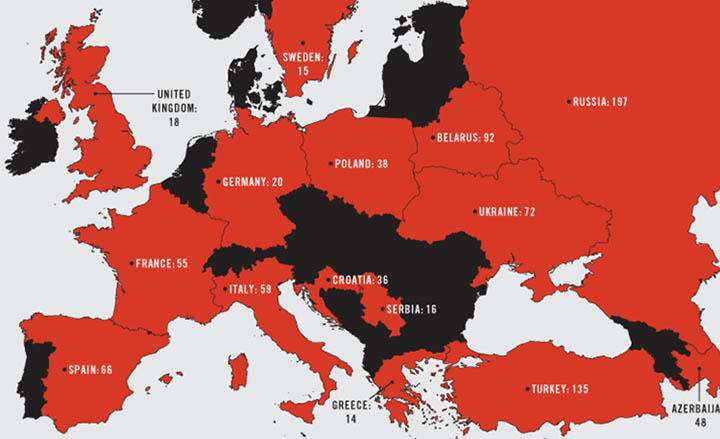Dear MSP,
We the undersigned have serious concerns about Part 2 of the Scottish Government’s Hate Crime and Public Order Bill, and increasingly so in light of recent parliamentary deliberations.
Over the last year, there has been a robust debate about Part 2 of the bill, which outlines new offences on the stirring up of hatred. We all condemn crimes motivated by hatred and prejudice. The difficulty with this Bill, in its current form, is its potential to have a wider, negative effect on freedom of expression in Scotland.
When the bill was published last year, the police, the legal profession, academics, civil liberties groups and others cautioned that the offences could catch legitimate debate on a range of issues. The vague wording of the offences and a lack of adequate free speech protections could, they warned, place a chill on free expression in the arts, the media and the public square when it comes to discussions about contentious issues such as religion and trans rights.
After a wide and sustained backlash, the Scottish Government announced several concessions. Most significantly, Ministers conceded that offending should be limited to ‘intent’. It also committed to ‘broadening and deepening’ a free speech clause covering religion and inserting a new clause on transgender identity.
Cabinet Secretary for Justice Humza Yousaf lodged amendments to effect these changes ahead of Stage 2 deliberations by the Justice Committee, which began on 2 February 2021. However, the Cabinet Secretary, in agreement with other MSPs on the Committee, decided to withdraw amendments on freedom of expression at the eleventh hour, saying he would seek ‘consensus’ on a ‘catch-all’ free speech clause, to be drafted ahead of Stage 3.
This move has, in our view, undermined the whole process of scrutiny to date. Amendments to safeguard freedom of expression on religion, sexual orientation and transgender identity – topics that are subject to strong and often controversial debate – were vitally important and agreed upon by the majority of stakeholders who have engaged with parliament over the last 12 months.
Providing separate and robust freedom of expression provisions on these topics was also the approach advocated by Lord Bracadale QC in evidence to the Committee last year. He said: “Such amendments to the bill would be an expression of the kind of line that we want to identify between ‘offensive behaviour’ on one side and ‘threatening and abusive behaviour’ on the other”.
The idea that a workable ‘catch-all’ provision covering these topics, as well as the characteristics of age, disability, and variations of sex characteristics, can be agreed upon by the government and other parties before final, Stage 3 proceedings take place is, frankly, untenable. Manufacturing such a clause over the next few weeks, behind closed doors, will also necessarily preclude the views of parliament, stakeholders and the public from being taken into account.
We strongly believe that producing workable provisions on the stirring up of hatred in this parliament is now entirely impracticable. These provisions could impact upon the most precious liberties in any democratic society: freedom of speech, freedom of expression, freedom of conscience and religion. They must be handled with the utmost care.
We urge MSPs in every party to oppose Part 2 of the Hate Crime Bill and allow other, non-contentious aspects of the bill to proceed without it. New proposals on the stirring up of hatred could be brought forward in the next parliament, where they would be scrutinised thoroughly over time, with renewed input by a wide range of stakeholders.
Sincerely,
Ruth Smeeth, Chief Executive, Index on Censorship;
Emma Webb, Associate Fellow, Civitas;
Ian Murray, Executive Director, Society of Editors;
Peter Tatchell, human rights campaigner;
Jim Sillars, former Deputy Leader, Scottish National Party;
Stephen Evans, CEO, the National Secular Society;
Simon Calvert, Deputy Director, The Christian Institute;
Hardeep Singh, Deputy Director, Network of Sikh Organisations;
Trina Budge, Director, For Women Scot;
Andrew Allison, Head of Campaigns, Freedom Association;
Kapil Summan, Editor, Scottish Legal News;
Dr Kath Murray, Research Fellow in Criminology, Uni. of Edinburgh;
Lucy Hunter Blackburn, researcher and former senior civil servant;
Lisa MacKenzie, independent researcher;
Dr Stuart Waiton, sociologist, Abertay University, Dundee;
Madeleine Kearns, journalist;
Jamie Gillies, Free to Disagree campaign.

